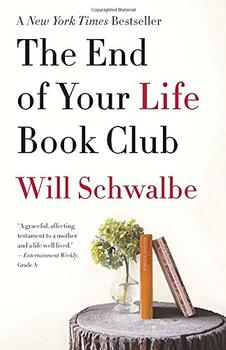Summary | Excerpt | Reading Guide | Discuss | Reviews | Beyond the Book | Readalikes | Genres & Themes | Author Bio

"I can't believe you hadn't read it. And it does apply to Iraq, even if that's not at all what it's about. It's a book about setting things in motion and then being too proud and stubborn to apologize and to change course. It's about thinking that being raised a certain way gives you the right to behave badly. It seems Bush was fated to get us into a war there no matter what." Mom was not a fan of our then-president, and she was horrified that he'd used al Qaeda and 9/11 as a pretext for invading Baghdad. Dad sometimes played devil's advocate to Mom's most liberal views, but on this subject he felt similarly, and they'd both taken recently to sharing books dissecting American foreign policy.
As we talked more about Appointment in Samarra, we soon found ourselves discussing the book's epigraph, which is, in fact, a speech from a play by W. Somerset Maugham, a writer on whose stories we would both later jointly binge. Maugham's parable is a retelling of a classic Iraqi tale. The speaker is Death:
There was a merchant in Baghdad who sent his servant to
market to buy provisions and in a little while the servant
came back, white and trembling, and said, Master, just now
when I was in the marketplace I was jostled by a woman in
the crowd and when I turned I saw it was Death that jostled
me. She looked at me and made a threatening gesture;
now, lend me your horse, and I will ride away from this city
and avoid my fate. I will go to Samarra and there Death
will not find me. The merchant lent him his horse, and the
servant mounted it, and he dug his spurs in its flanks and as
fast as the horse could gallop he went. Then the merchant
went down to the market-place and he saw me standing
in the crowd and he came to me and said, Why did you
make a threatening gesture to my servant when you saw
him this morning? That was not a threatening gesture, I
said, it was only a start of surprise. I was astonished to see
him in Baghdad, for I had an appointment with him tonight
in Samarra.
Later, we would have more time and cause to talk about fate and the role it did or didn't play in the events of our lives - particularly in the events that lay ahead. But during that phone call in September, my mother and I soon moved on to other topics. When it sounded like the conversation was drawing to a close, Mom had one more thing she wanted to mention.
"I just wanted to let you know that your sister is insisting I see another doctor and go in for more tests." The new doctor was going to do another scan and try to determine why she couldn't get rid of the hepatitis.
"That sounds like a good idea, Mom."
"And are you going to get some rest?" she asked.
"There's so much to do before I leave," I hedged."I don't know how I'm going to get it all done." At the time, I was editor in chief of a book publishing house, and was headed, as I was every year, to Germany for the Frankfurt Book Fair, which is held the first week in October.
"You can only do what you can, and what doesn't get done, just doesn't get done." Mom was forever giving me advice that she would never herself take.
"Mom, I promise to take it easier if you do - we'll make a deal. But it sounds like no matter what, it's going to be a very challenging couple of days for you, especially when you're still not feeling well."
Every day, Mom was at the hospital for a few hours with Dad. Friends she adored were in town from London, so she was spending time with them. She was also planning to drive hours out of town with them to visit another friend, who had a brain tumor and had just been told he had anywhere from three months to two years to live. Then, at the end of the week, she had her appointment with the new doctor.
I realize now that all of us had reached a mad, feverish pitch of activity in the days leading up to Mom's diagnosis. Dinners, drinks, visits, benefits, meetings, scheduling, picking up, dropping off, buying tickets, yoga, going to work, cardio at the gym. We were terrified to stop, stop anything, and admit that something was wrong. Activity, frenzied activity, seemed to be the thing we all felt we needed. Only Dad slowed down, and that wasn't until he was trapped in a hospital getting intravenous antibiotics. Everything would be all right, everything would be possible, anything could be salvaged or averted, as long as we all kept running around.
Excerpted from The End of Your Life Book Club by Will Schwalbe. Copyright © 2012 by Will Schwalbe. Excerpted by permission of Knopf. All rights reserved. No part of this excerpt may be reproduced or reprinted without permission in writing from the publisher.
Your guide toexceptional books
BookBrowse seeks out and recommends the best in contemporary fiction and nonfiction—books that not only engage and entertain but also deepen our understanding of ourselves and the world around us.